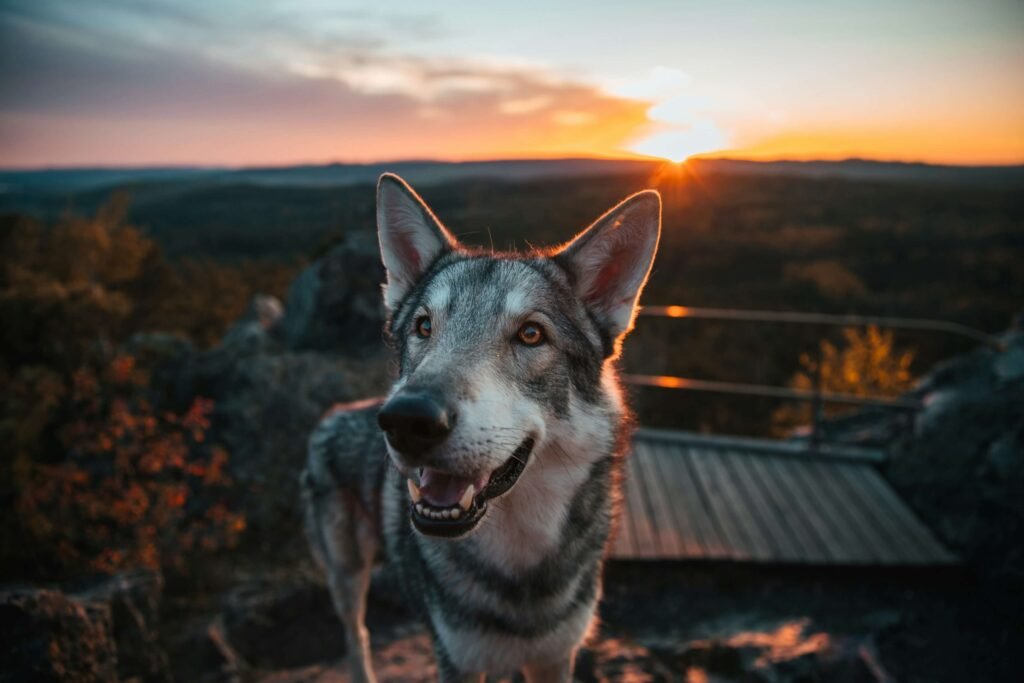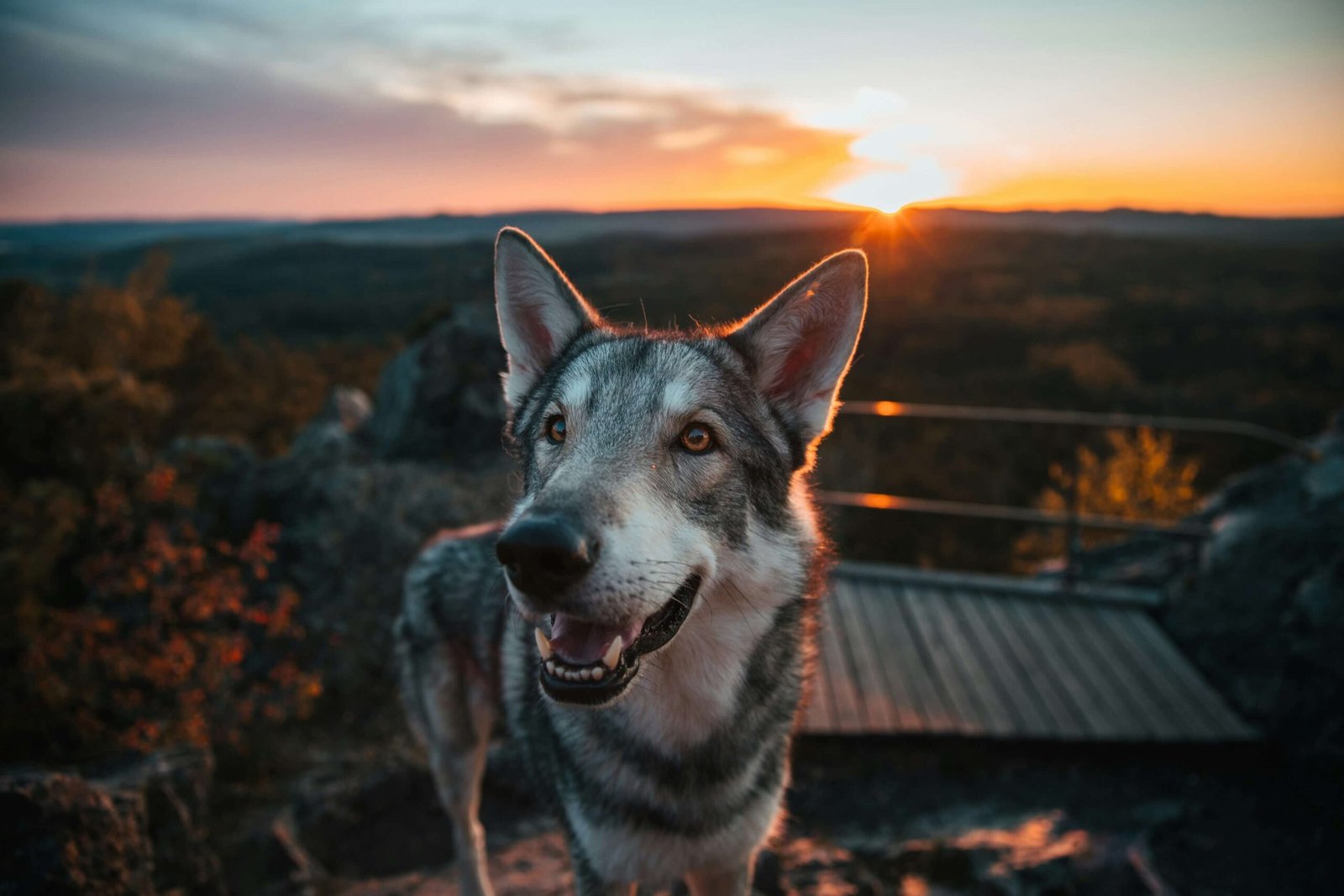Hybrid Giant Wolf Dog: A Majestic Blend of Power and Loyalty
The Hybrid Giant Wolf Dog is a captivating crossbreed that combines the wild allure of wolves with the domesticated loyalty of dogs. These magnificent animals are not just pets—they are companions that embody strength, intelligence, and an untamed spirit. Often sought after for their striking appearance and unique temperament, these hybrids require special care and understanding. Whether you’re considering adding one to your family or simply fascinated by their nature, this blog post will explore everything you need to know about the Hybrid Giant Wolf Dog, from their origins to their care requirements.
Key Characteristics of the Hybrid Giant Wolf Dog
The Hybrid Giant Wolf Dog is a remarkable blend of traits inherited from its wolf and dog ancestors. Understanding these characteristics is essential for anyone interested in this extraordinary breed.
Size and Stature:
Standing tall with a muscular build, these hybrids often weigh between 80 to 150 pounds, making them one of the largest canine companions available.Coat and Colors:
Their thick double coat can range from gray and white to shades of brown, mimicking the natural camouflage of wolves while offering protection against harsh weather.Temperament and Behavior:
Known for their independence and intelligence, these dogs are loyal but may exhibit a strong prey drive and territorial instincts inherited from their wolf lineage.Lifespan and Health:
With proper care, they typically live 10 to 14 years, though they may be prone to health issues like hip dysplasia and autoimmune disorders.Energy Levels:
These hybrids are highly active and require significant daily exercise to stay physically and mentally stimulated.
These defining traits make the Hybrid Giant Wolf Dog a challenging yet rewarding companion for experienced owners.

Challenges of Owning a Hybrid Giant Wolf Dog
While owning a Hybrid Giant Wolf Dog can be incredibly fulfilling, it also comes with unique challenges. Prospective owners must be prepared for the demands of caring for such a powerful and intelligent animal.
Socialization Needs:
Early and consistent socialization is crucial to ensure they interact safely with humans, other pets, and unfamiliar environments.Training Requirements:
These hybrids are highly intelligent but can be stubborn. Positive reinforcement techniques work best to establish trust and obedience.Space and Environment:
Due to their size and energy levels, they thrive in homes with large, secure yards rather than apartments or small spaces.Legal Restrictions:
Some areas have strict regulations or bans on wolf hybrids, so it’s important to research local laws before acquiring one.Dietary Needs:
Their diet should mimic what they might eat in the wild—high-protein, nutrient-rich food—to support their active lifestyle and overall health.
Understanding these challenges ensures you’re equipped to provide the care and environment this unique hybrid requires.
Check this guide 👉American Wolf Dog: Best 7 Expert Tips!
Check this guide 👉Wolf Hunting Dogs: Best 7 Expert Tips!
Check this guide 👉Can a Wolf and a Dog Mate? Best 7 Expert Tips!
Pros of Owning a Hybrid Giant Wolf Dog | Cons of Owning a Hybrid Giant Wolf Dog |
|---|---|
Striking and majestic appearance | High maintenance and training needs |
Loyal and protective nature | Prone to escaping or wandering |
Intelligent and quick learners | Potential legal restrictions |
Great for experienced dog owners | Requires extensive daily exercise |
Unique bond with their human companions | May exhibit unpredictable behavior |
How to Care for Your Hybrid Giant Wolf Dog
Proper care is vital to ensure your Hybrid Giant Wolf Dog thrives in a domestic setting. Here are some essential tips to keep them happy and healthy.
Exercise Routine:
Aim for at least 1-2 hours of vigorous exercise daily, including activities like long walks, runs, or playtime in a secure area.Mental Stimulation:
Provide puzzle toys, obedience training, and scent games to challenge their sharp minds and prevent boredom-related behaviors.Grooming Needs:
Regular brushing is necessary to manage shedding and maintain their thick coat, especially during seasonal changes.Veterinary Care:
Schedule routine check-ups and vaccinations, and work closely with a vet experienced in hybrid breeds for specialized care.Secure Living Space:
Reinforce fences and enclosures to prevent escapes, as their curiosity and agility make them skilled climbers and diggers.
By meeting these care requirements, you’ll create a safe and enriching environment for your hybrid companion.
Building a Strong Bond with Your Hybrid Giant Wolf Dog
Forming a deep connection with your Hybrid Giant Wolf Dog takes time, patience, and dedication. These strategies can help strengthen your relationship.
Spend Quality Time Together:
Engage in shared activities like hiking, playing fetch, or simply relaxing side by side to build trust and rapport.Respect Their Independence:
Unlike traditional dogs, these hybrids value their autonomy. Avoid forcing interactions and let them come to you when ready.Use Positive Reinforcement:
Reward good behavior with treats, praise, or toys to reinforce desired actions and foster a cooperative attitude.Be Consistent with Rules:
Establish clear boundaries and stick to them to avoid confusion and ensure your hybrid understands expectations.Understand Their Body Language:
Learn to read subtle cues like ear position, tail movement, and vocalizations to better interpret their emotions and needs.
A strong bond enhances mutual respect and ensures a harmonious partnership with your hybrid pet.
Training Tips for Hybrid Giant Wolf Dogs
Training a Hybrid Giant Wolf Dog requires creativity and consistency due to their independent nature. These tips can help streamline the process.
Start Early:
Begin training as soon as possible to establish routines and expectations while they’re still young and impressionable.Focus on Basic Commands First:
Teach foundational commands like “sit,” “stay,” and “come” before moving on to advanced skills.Incorporate Play into Training:
Use interactive games to make learning fun and engaging, keeping their attention focused on the task.Avoid Harsh Corrections:
Negative reinforcement can damage trust; instead, rely on rewards-based methods to encourage cooperation.Be Patient and Persistent:
Progress may be slow, but persistence pays off when working with such intelligent yet headstrong animals.
With the right approach, training becomes an enjoyable way to deepen your connection.
Health Concerns Specific to Hybrid Giant Wolf Dogs
Like any breed, Hybrid Giant Wolf Dogs have specific health concerns that owners should monitor closely. Awareness and proactive care can extend their lifespan and improve their quality of life.
Hip Dysplasia:
This genetic condition affects joint health and mobility, requiring regular vet check-ups and weight management.Autoimmune Disorders:
Some hybrids are predisposed to autoimmune diseases, which may manifest as skin issues or lethargy.Parasites and Infections:
Their thick coats can harbor ticks and fleas, necessitating frequent grooming and preventative treatments.Dental Problems:
Regular teeth cleaning prevents gum disease and tooth decay, which can impact their overall health.Allergies:
Food or environmental allergies may cause itching or digestive upset; consult a vet for tailored solutions.
Staying vigilant about these concerns ensures your hybrid remains healthy and vibrant.
Activities to Keep Your Hybrid Giant Wolf Dog Engaged
Keeping your Hybrid Giant Wolf Dog mentally and physically engaged is key to preventing destructive behaviors. Try these activities to channel their energy productively.
Agility Training:
Set up obstacle courses to challenge their athleticism and sharpen their problem-solving skills.Scent Work Games:
Hide treats around the yard or house to tap into their keen sense of smell and hunting instincts.Swimming Sessions:
Many hybrids love water, making swimming an excellent full-body workout.Interactive Toys:
Puzzle feeders and treat-dispensing toys keep them entertained while stimulating their minds.Exploration Walks:
Take them to new trails or parks to satisfy their curiosity and provide sensory enrichment.
Engaging activities not only tire them out but also strengthen your bond through shared adventures.
Frequently Asked Questions About Hybrid Giant Wolf Dogs
Are hybrid giant wolf dogs aggressive?
Not inherently, but improper handling or lack of socialization can lead to behavioral issues.
How much exercise do they need daily?
At least 1-2 hours of vigorous activity, including walks, runs, and playtime.
Can they live with children?
Yes, if introduced early and trained properly, they can coexist harmoniously.
What’s their lifespan?
Typically 10-14 years, depending on genetics and care.
Do they shed heavily?
Yes, seasonal shedding is significant due to their dense coats.
Embracing the Journey with a Hybrid Giant Wolf Dog
The Hybrid Giant Wolf Dog is a truly remarkable companion, blending the wild beauty of wolves with the devotion of domesticated dogs. While they demand significant commitment, their intelligence, loyalty, and striking presence make every effort worthwhile. By understanding their unique needs and building a strong bond through patience and care, you can enjoy a rewarding relationship with this extraordinary hybrid. If you’re ready for the challenge, the Hybrid Giant Wolf Dog could become your ultimate adventure partner.
Pemphigus Erythematosus in Cats: Best 7 Expert Tips! – Learn to recognize symptoms, manage flare-ups, and improve your cat’s quality of life.
Pemphigus Erythematosus in Dogs: Best 7 Expert Tips! – Discover causes, symptoms, and treatment options to manage this autoimmune skin condition effectively.
Cat Tympanic Membrane: Best 7 Expert Tips! – Learn how to protect your cat’s eardrum, spot issues early, and ensure lifelong auditory health.
Dog Tympanic Membrane: Best 7 Expert Tips! – Learn how to protect your dog’s eardrum, spot issues early, and ensure lifelong ear health with expert advice.





